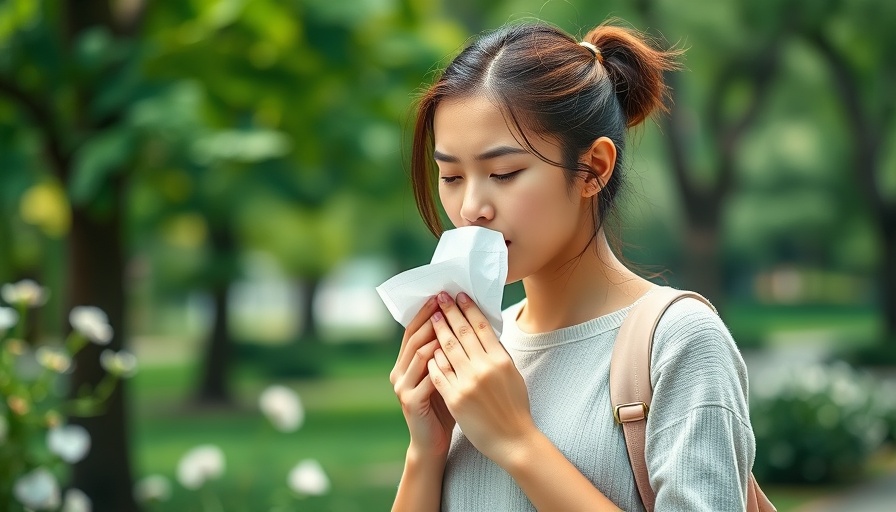
The Allergy Capital Ranking: Understanding Houston's Place
As spring brings blooming flowers and vibrant greenery, it also heralds the relentless season of allergies for millions. The Asthma and Allergy Foundation recently released its highly anticipated report outlining the top allergy capitals in the United States, highlighting Houston’s ranking and the implications for those living in and around the city. According to the report, Houston secured the 26th spot on the list, a significant dichotomy compared to fellow Texas city Dallas, which ranked 13th. With over 100 million Americans grappling with seasonal allergies, understanding the factors contributing to these rankings is vital for residents.
Pollen Counts: Analyzing the Core Issues
The foundation's ranking employs a combination of metrics, including tree, grass, and weed pollen scores, the usage of over-the-counter allergy medications, and the availability of allergists in nearby areas. Houston's pollen count was noted as worse than average, primarily due to its expansive flora that produces large amounts of pollen, exacerbated during peak seasons. Monitoring these pollen counts not only holds significance for individuals suffering from allergies but can also serve as a crucial guide for outdoor activities, helping them avoid unnecessary discomfort.
Comparative Locations with High Allergy Rates
At the top of the list sits Wichita, Kansas, followed by New Orleans and Oklahoma City. The Midwest and Southeast regions emerge as clear hotspots for allergy sufferers based on these reports, with increased tree and grass pollens contributing to this trend. Understanding the climatic and environmental differences among the highest-ranked cities can provide insight into why Houston finds itself in the bottom half of the list.
Health Implications of High Allergy Rates
Elevated allergy cases can lead to various health problems, ranging from persistent sneezing and runny noses to more severe issues like asthma attacks. For those residing in cities with soaring allergy counts like Houston, it’s crucial to recognize the health implications associated with prolonged exposure to high pollen levels. As future predictions suggest that climate change may influence pollen production in various regions, awareness and preparedness will be essential.
Prevention Strategies for Houston Residents
With allergy season upon us, adopting effective prevention strategies becomes even more critical. Residents are encouraged to:
- Monitor daily pollen counts and plan outdoor activities on lower-pollen days.
- Stay indoors during peak pollen periods, particularly on windy days.
- Wear sunglasses and masks to minimize pollen inhalation when outdoors.
- Utilize air purifiers at home to filter out allergens.
Implementing these measures can help mitigate allergy symptoms and improve overall quality of life for Houston residents.
Emotional Impact: Living with Allergies
For those affected, the emotional toll of dealing with allergies can be substantial, influencing daily activities and overall well-being. Many individuals report feelings of frustration and sadness when unable to engage in outdoor activities due to their symptoms. Moreover, the psychological burden of continuous medication use and constant monitoring of environmental factors cannot be understated. This underscores the importance of community support and awareness surrounding allergy issues.
Future Trends: What Lies Ahead for Allergy Sufferers
Looking forward, one must consider the potential for changing trends in allergy rates influenced by environmental factors. With climate change causing longer pollen seasons and increased allergen intensity, individuals may need to adapt their strategies continually. Advocacy for clearer public health guidelines, along with increased accessibility to allergy care, will be vital in the coming years.
In conclusion, Houston’s ranking in the Allergy Capitals list serves as a wake-up call for residents to be proactive about their health. By understanding the factors at play and implementing effective strategies, individuals can navigate allergy season with greater assurance. Whether it means altering travel plans during peak pollen days or ensuring that homes remain allergen-free, the steps taken today could significantly impact overall wellness tomorrow.
 Add Element
Add Element  Add Row
Add Row 



Write A Comment